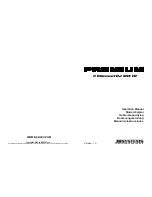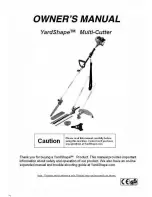
1
Installation
Connecting the Oven Cryogenic System
Thermo Scientific
TRACE 1300 and TRACE 1310 Hardware Manual
13
Connecting the Oven Cryogenic System
If the oven of your TRACE 1300/TRACE 1310 is equipped with a cryogenic cooling option,
you need a supply of coolant, such as carbon dioxide (CO
2
) or liquid nitrogen (N
2
).
Oven Cryo System with Carbon Dioxide Connection
This Oven cryo system consists of a tube for carbon dioxide inserted into the oven and fitted
with a 1/8-in. solenoid valve for carbon dioxide mounted into the back of the GC.
Carbon dioxide must be supplied in a high-pressure cylinder with a dip tube. It is your
responsibility to ensure the delivery connection from the carbon dioxide cryogenic supply is
adaptable to 1/8-in. tubing.
shows the proper carbon dioxide container
configuration.
Figure 13.
Carbon Dioxide Container
To connect the cryogenic system to the carbon dioxide supply
1. Connect the proper end of the cryo supply tube to the 1/8-in. NPT connection of the
solenoid valve using the proper nut and ferrule. Use a 7/16-in. wrench to tighten the
fittings. See
Dip tube
WRONG
CORRECT
CAUTION
High pressures and extremely low temperatures make pressurized carbon
dioxide a hazardous material. High concentrations of carbon dioxide are dangerous.
To avoid injury, always follow the safety precautions and delivery system design
recommended by your gas supplier.
















































